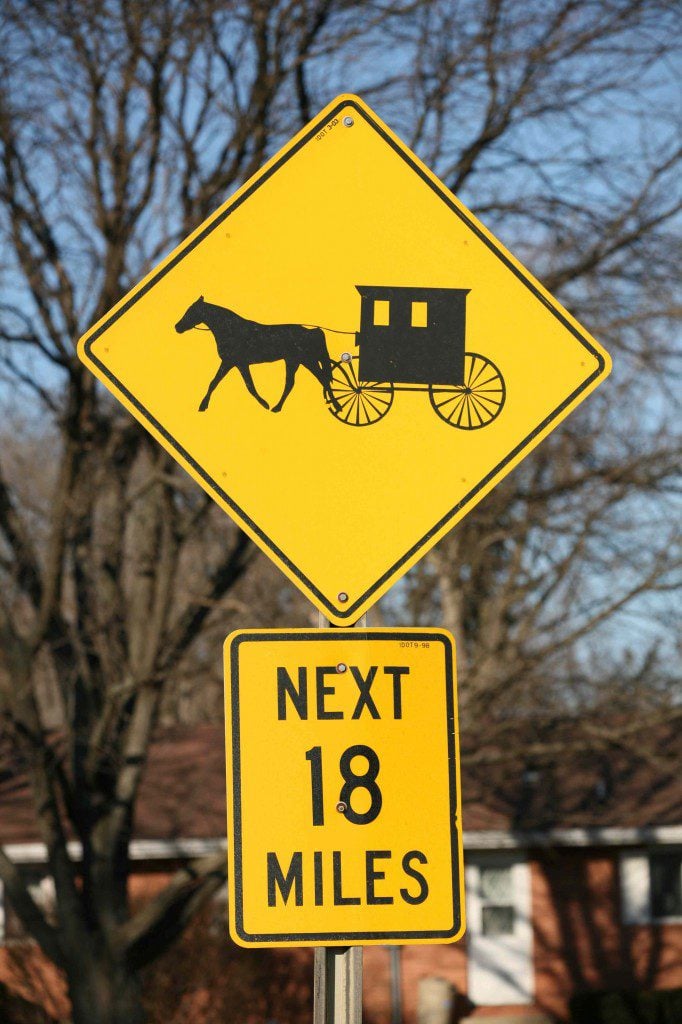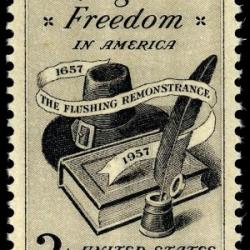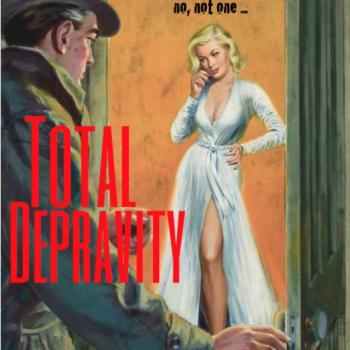Consider burkhas. In some religious traditions, women are required to wear head-to-toe loose-fitting garments to preserve their modesty and to shield men from the temptations that may follow from glimpsing the female form.
I believe in religious freedom, so I believe that those who choose to wear burkhas must be free to do so. A pluralist society with secular law and government should not seek to limit that freedom.

But what happens when this does not satisfy the burkha believers? Part of the reason for this practice, after all, is to shield the eyes of men — to ensure their freedom to go about their day without encountering the sight of un-burkha-ed women. If only the women of their particular sect follow the practice, then these men will still find themselves constantly barraged by that sight and that temptation — their religious freedom will be under a constant attack. Their freedom to fulfill their religious requirement demands that they should not have to endure that. So for these men, “religious liberty” demands that all women of every faith be required to wear burkhas.
Such a requirement must be passed as a binding law for all women everywhere or else these men are being denied their religious liberty.
It’s a fundamental matter of conscience. Any refusal to enforce such a statute, universally, is an affront to their faith — a “war” on their freedom of religion.
That’s burkha-logic. And it’s utter nonsense.
“It does me no injury,” Thomas Jefferson wrote, “for my neighbor to say there are 20 gods or no God. It neither picks my pocket nor breaks my leg.” The advocates of burka-logic disagree. They insist that the very presence of such irreligious neighbors does them an injury — the injury of constraining their freedom to live unperturbed by the constant reminder of such blasphemies.
At it’s core, burkha-logic says that my freedom and your freedom are incompatible, and that therefore your freedom must be constrained so that my freedom can be enjoyed.
It says that my religious beliefs must be established, and that therefore you cannot be free to exercise your religious beliefs.
That has nothing to do with religious liberty or with freedom of conscience. That’s just being a bully and a jackass.
Sadly, none of this is hypothetical. We are, right now, hearing this burkha-logic trumpeted loudly and proudly by the U.S. Conference of Catholic Bishops and by a distressing number of aging pundits who seem to think that the words “religious liberty” are a magical invocation that allows the speaker to coerce all others to abide by their own sectarian beliefs.
Starkly, explicitly, this is what the bishops are saying. They are saying that they want to coerce everyone else — all employers everywhere and especially all women everywhere — to abide by their sectarian beliefs.
Don’t take my word for it. Just listen to Anthony Picarello, general counsel for the U.S. Conference of Catholic Bishops, who said this to USA Today:
“There has been a lot of talk in the last couple days about compromise, but it sounds to us like a way to turn down the heat, to placate people without doing anything in particular,” Picarello said. “We’re not going to do anything until this is fixed.”
That means removing the provision from the health care law altogether, he said, not simply changing it for Catholic employers and their insurers. He cited the problem that would create for “good Catholic business people who can’t in good conscience cooperate with this.”
“If I quit this job and opened a Taco Bell, I’d be covered by the mandate,” Picarello said.
He said this voluntarily. He wasn’t tricked into saying this. Picarello said this because this — exactly this — is what the bishops are demanding.
Not a “conscience clause.” Not a religious exemption for Catholic institutions. Picarello’s honesty has proven those claims to be dishonest.
What the bishops demand is a universal law applying to everyone everywhere. They demand a sectarian establishment of sectarian belief that would apply not just to Catholic institutions but even to Taco Bell. They demand a world in which health insurance does not cover contraception for any woman anywhere.
All women must wear the burkha. All women must be forced, compelled and coerced to wear the burkha — even those who aren’t burkha-believers — or else the burkha-bishops say their own freedom is being impinged upon.
The burkha-bishops insist that their religious freedom to coerce others trumps those others’ freedom not to be so coerced.
It’s just that stark, just that explicit. They are saying so themselves. Pay attention and don’t pretend they don’t really mean it.
Taco Bell, for frock’s sake.
One more example: Consider the Amish. Their religious beliefs prohibit them from driving automobiles (mostly, there are exceptions), so they ride around in buggies pulled by horses. We honor their religious liberty and do not limit their freedom to drive their buggies on roadways built for car traffic. And the Amish, being good people, are pleased to have their sectarian freedoms preserved by our secular laws and government.
The Amish, unlike the bishops, are satisfied with the freedom to believe and practice their religion. The Amish, unlike the bishops, are not calling for a ban on all automobiles everywhere. They are not demanding that everyone else must drive buggies too.
Not being mad with power, the Amish would never think that their religious freedom demands that everyone else be coerced to abide by their rules. And since the Amish are honest people who are not inclined towards disingenuous rhetoric, it would not occur to them to pretend that the non-Amish car-driving rest of us are somehow “oppressing” them and denying them their religious freedom by refusing to follow their particular rules.
You will never hear an Amishman say anything so cruel or foolish or hideously dishonest as to suggest that he isn’t really free to practice his religion until everyone else is forced to take a horse-and-buggy through the drive-through at Taco Bell.












